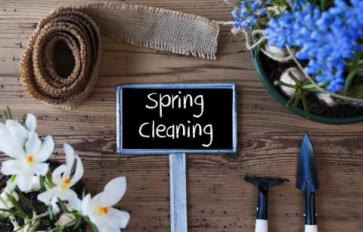
Okay, I know this might not be everyone’s favorite subject to touch on, but pee is actually really important. In fact, just from looking at the color, you'll be able to tell a lot about your health. That said, not many people care about the color of their pee, or give it a second thought. They want to get in and out of the bathroom as quickly as possible, and I get that. But if you want to really see where you stand in terms of health, you need to pay more attention to your pee. And don't worry: You don't have to pee in a cup or do any fancy experiments to know if your urine is normal or not.
What does the color of your pee mean?
For starters, just observing what color your urine is can help you tell right off the bat if your pee is normal. It's really simple to draw a conclusion using this method too: Light yellow is good, and dark yellow means you need to hydrate. In other words, if your pee is very light in color, or practically clear, you're getting enough water in your system (so good job!). That said, pee can also be different colors. It can be red or brown, which hints at bleeding (or eating beets). If you see this in your urine, make sure to contact your doctor immediately (assuming you're not on your period, or ate beets any time recently). That said, cloudy urine is also possible: If you see this, it could indicate a urinary tract infection. Contact your doctor immediately to schedule a check up if you notice this.
How much water should you be drinking?
Most people believe you need to drink 8 cups of water a day to keep your bladder happy. Actually, that's not entirely true. Every person is different, and believe it or not, men need more water than women. The recommended dosage for men is 16 cups of water per day, and 11 for women. That said, don't go by that recommendation alone: Go by the color of your pee. More than likely, as soon as you wake up, your pee will be dark. That's because you haven't drunk anything all night. After you hydrate, and make sure to get plenty of water in over the course of the day, your pee should be fairly light, or near clear. Whatever amount of water it takes to get your urine to this level is the amount of water you should be drinking on a daily basis. This is essential to flushing out toxins from your body. If you're not sure where to start, aim for at least 8 cups a day and see how your pee responds.
How often should you be going to the bathroom?
Most people urinate between six and eight times a day. But if you're drinking plenty, it's not abnormal to go as many as 10 times a day. Believe it or not, certain medications can also cause frequent trips to the bathroom (diuretics for high blood pressure are known for this). That said, if you're guzzling mass amounts of water after a hard-core workout, it's normal to take many trips to the bathroom. But if you're constantly thirsty and peeing a lot, over days or weeks, there may be a problem. It could be a symptom of diabetes. Other symptoms of diabetes include being very tired, having slow-healing cuts/bruises, and numbness/tingling in your hands and feet. If you're experiencing all these symptoms in combination, it's recommended to see a doctor right away. Also, on a side note, caffeine and alcohol are diuretics, so you will pee more after consuming them. Just saying.
Should your pee smell?
In most cases, your pee should not have a strong scent if you're properly hydrated. When pee is a dark yellow color, it tends to have a stronger ammonia scent than normal (because you're dehydrated). Also, certain foods can cause your urine to smell differently. For example, asparagus is infamous for imparting a characteristic odor to urine. That said, a urinary tract infection may produce a foul scented pee that should be reported to your doctor immediately. Urine may also smell abnormally sweet in uncontrolled diabetes. Make sure to tell your doctor about that too, should the scent arise.
Should it hurt when you pee?
No. If your pee hurts or burns, it could be a sign that you have a urinary tract infection, or something far worse: an STD, kidney stone, or even interstitial cystitis. Don't worry: I'll explain. Some STDs can cause pain or burning, but that might not be the exact cause (so don't panic). It could also be a kidney stone stuck near the entrance to your bladder, which could cause pain or burning sensations. Interstitial cystitis is an inflammation of the wall of your bladder, which is also known to cause pain while peeing. Or, you simply might be sensitive to the chemicals in soaps, douches, or even toilet paper. No matter the case, your best bet is to see your doctor right away. They'll be able to detect the exact reason urination is painful.
What could happen to you if you hold in your pee too long?
Waiting too long to pee can raise your risk of bladder infections and other urinary tract infections. Yuck. This is especially true for women. However, bladder infections can stem from many other sources. Here are two to watch out for: using pads or panty liners every day, or wiping from back to front (which can transfer bacteria from your anus to your urinary tract). Gross.
The bottom line
Everything from food to water can affect the color, smell, and frequency of your pee. In the short run of it, if your pee is light yellow, fairly odorless, and painless, you're pretty healthy. Also, if you're going to the bathroom six to eight times a day, that's also a good sign. But if your pee is dark, a strange color, smells odd, and painful, get checked by a doctor. There could be something going on. That said, don't run to the doctor if your pee is dark and a little strong in odor: You're probably just dehydrated. Drink some water and see if the color and smell of your pee improves. Once it becomes light yellow and nearly odorless, congrats: You're hydrated!








